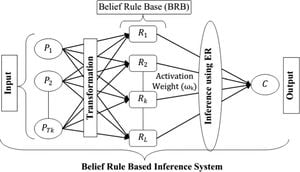The anticipation for Australia Day 2025 is building as preparations for celebrations marking the nation’s historic day come underway. The annual event, observed on January 26, is not just another public holiday; it’s steeped in cultural significance and often ignites discussions about the broader narratives of inclusion and history.
This year’s festivities promise to blend traditional celebrations of Australian identity with acknowledgments of the multifaceted challenges faced by the nation today. Australia Day commemorates the arrival of the First Fleet at Port Jackson, New South Wales, in 1788, and has been met with both jubilation and contention as how to observe it evolves with the country’s growing awareness of indigenous rights and histories.
On January 23, 2025, the Australian embassy hosted the Australia Day Reception at The Ritz-Carlton, Bangkok. Ambassador Angela Jane Macdonald delivered remarks underscoring Australia's multicultural ethos, emphasizing the significance of innovation and international partnerships. The ambassador recognized the contributions of Australian citizens to the world and reiterated the importance of continued collaboration between Australia and Thailand, particularly with respect to regional challenges such as climate change and inequality.
"Australia Day is not just about recognizing our past, but about shaping our future together," Macdonald remarked, reflecting on the need for collective action against pressing global issues. This sentiment speaks to the dual nature of Australia Day: cherry-picking moments of national pride, yet also recognizing historical injustices faced by the indigenous communities.
Historically, Australia Day has been celebrated since 1935 but has faced significant scrutiny and opposition. Many Australians, particularly from the Aboriginal communities, observe January 26 as 'Survival Day' or 'Day of Mourning', stigmatizing it as the beginning of colonization and dispossession.
Public sentiment toward this day continues to shift, evidenced by some local governments choosing to observe citizenship ceremonies on alternative dates. Recently, several councils have called for the adoption of different days to celebrate nationhood, giving weight to the grievances of those viewing January 26 with reflective sadness.
At the same time, efforts will also be made to celebrate the diverse cultural tapestries woven throughout Australian history, highlighting how immigration has shaped the nation. Exhibitions showcasing Australian products, such as Blackmores supplements and renowned Penfolds wines, will feature prominently at these events, celebrating not only Australian commerce but also its traditions.
Each year, Australia Day sparks renewed debates surrounding national identity, citizenship, and the evolution of public consciousness. Ambassador Macdonald emphasized during the reception the importance of remaining committed to exploring these discussions with both openness and humility, fostering dialogue on the complex awareness of differing histories.
Another notable aspect leading up to 2025 is the anticipated gatherings across Australia, which will comprise festive activities ranging from community barbecues to fireworks displays, uniting Australians from different backgrounds. Such gatherings aim to forge connections and inclusivity, directly challenging the historical narratives associated with this day. During these festivities, organizers plan activities highlighting multicultural participation, promoting unity and respect among all communities.
Across Australia, the conversation continues as to how to reconcile the celebratory aspects of Australia Day with the recognition of its painful history. Institutions, both public and private, are being urged to prioritize respectful acknowledgment of indigenous peoples and the devastating impacts of colonization. Public events will likely include moments of respect, such as acknowledgments of country, honoring the enduring traditions of Aboriginal and Torres Strait Islander peoples.
Critical to these discussions is education on the perspectives of Indigenous Australians. Educators and community leaders are encouraged to use this timing around Australia Day to educate the public on historical narratives and social justice initiatives championed by Aboriginal leaders. The hope is to cultivate empathy and broaden public awareness of the events commemorated.
Australia Day 2025 is about more than just festivities; it is intended to be reflective of where Australia has come from and where it hopes to go. "This National Day gives every Australian the opportunity to contemplate our shared future even as we acknowledge our past," stated Macdonald.
With the upcoming celebrations drawing close, Australians are reminded not only to embrace and celebrate their national identity but also to reflect on their responsibilities toward one another and the environment. The events leading up to and including Australia Day will serve as pivotal moments of reflection, unity, and celebration of progress.
Australia Day 2025 will encapsulate the nation's diverse culture, whilst also engaging with the challenging truths of its past. Importantly, the day serves as both celebration and solemnity, reinforcing the notion of togetherness as Australia continues to navigate its complex relationship with its history and values.



